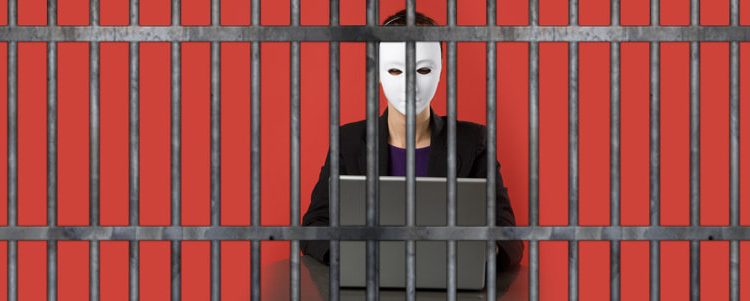Don’t Be the Next Diego Gomez! Young Researcher Faces Prison Charges for Sharing Research

One of the reasons copyright laws exists is to prevent others from using a created work (and benefiting from it) without acknowledging its creators. Rightfully, some share of the proceeds should be given to the person who invented it. In academia, where scientists must have access to the work of their fellow scientists in order to continue to advance their field, things are a little different. For starters, scientists do not receive any financial benefit from sharing data or research papers. In the case of Colombian scientist Diego Gomez, he decided to share a thesis that he found helpful on Scribd. Why? It contained information that would be useful in identifying amphibians he had seen in protected areas.
Jail Time for Sharing a Thesis
As a graduate student all too familiar with needing papers that were difficult to access, he shared the thesis to help others working in conservation biology. The author of the thesis lodged a legal complaint and now Diego could be facing copyright infringement penalties, including jail time. A fair use system is not present in Colombia; instead, it has a list of exceptions and limitations to the rights of authors. This list is not applicable to this case as it does not make provisions for a digital age. Copyright infringement cases must prove both malicious intent and economic harm. Since Diego posted the thesis on Scribd when it allowed free downloads and removed it when he became aware that Scribd started charging for its service, it cannot be said that he had an intent to violate copyright laws for personal gain. It also cannot be said that he was attempting to profit from sharing the thesis online.
Many supporters of open access do not consider Gomez’s actions a copyright violation. He has received support from Fundación Karisma and the Electronic Frontier Foundation (EFF). The latter has been advocating on Gomez’s behalf. Creative Commons has also expressed their support for Diego. The EFF has stated that legal reform is needed in order to make open access the norm for the benefit of scientific progress and creative expression.
This copyright infringement case highlights the tension that exists between the need to share data with the scientific community and the need to avoid copyright violation. This is not unique to Diego Gomez—a recent Kudos study indicated that researchers want to be able to share their data. The study also revealed that researchers want to respect copyright laws. Some publishers have already started to find ways to allow researchers to legally share academic papers. A push towards open access is also one way to solve the copyright infringement issues. Academic papers can also be published under specific Creative Commons licenses.
How did we get here? Part of the problem is that intellectual property laws have generally been written for application in industry. In these instances, what is at stake is profits that the creator of the work is being denied access to. This is not the case in science. Among researchers, the sharing of academic papers does not make the person sharing the information richer. Publishers may lose on subscriptions but individual scientists are not generally involved in the wholesale sharing of all publications. Usually, it will be peer to peer sharing of a specific article. On May 24, 2017, a judge in Bogota gave the verdict that Deigo Gomez was innocent and has also been cleared of all charges. However, the prosecutor has appealed this decision.
The case of Colombian scientist Diego Gomez is unique in that we typically do not expect to be sent to jail for sharing academic papers. There are stiff copyright infringement penalties in place for copyright violation. Sharing data is essential to scientists so that they are able to do their jobs. It is also important that copyright laws be respected. The case of Diego Gomez also shows that copyright laws as written for the entertainment industry are not suitable for academic situations.









